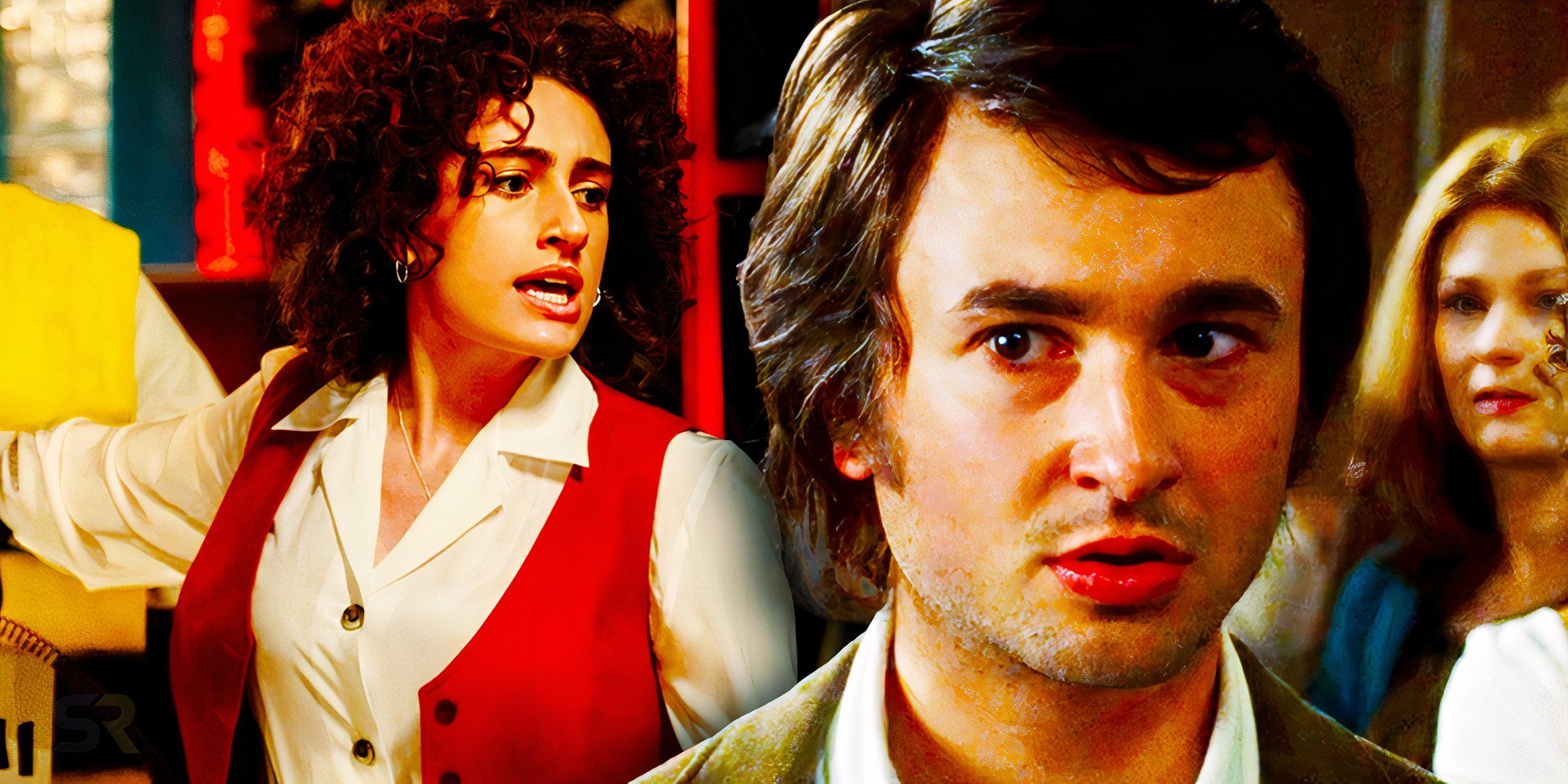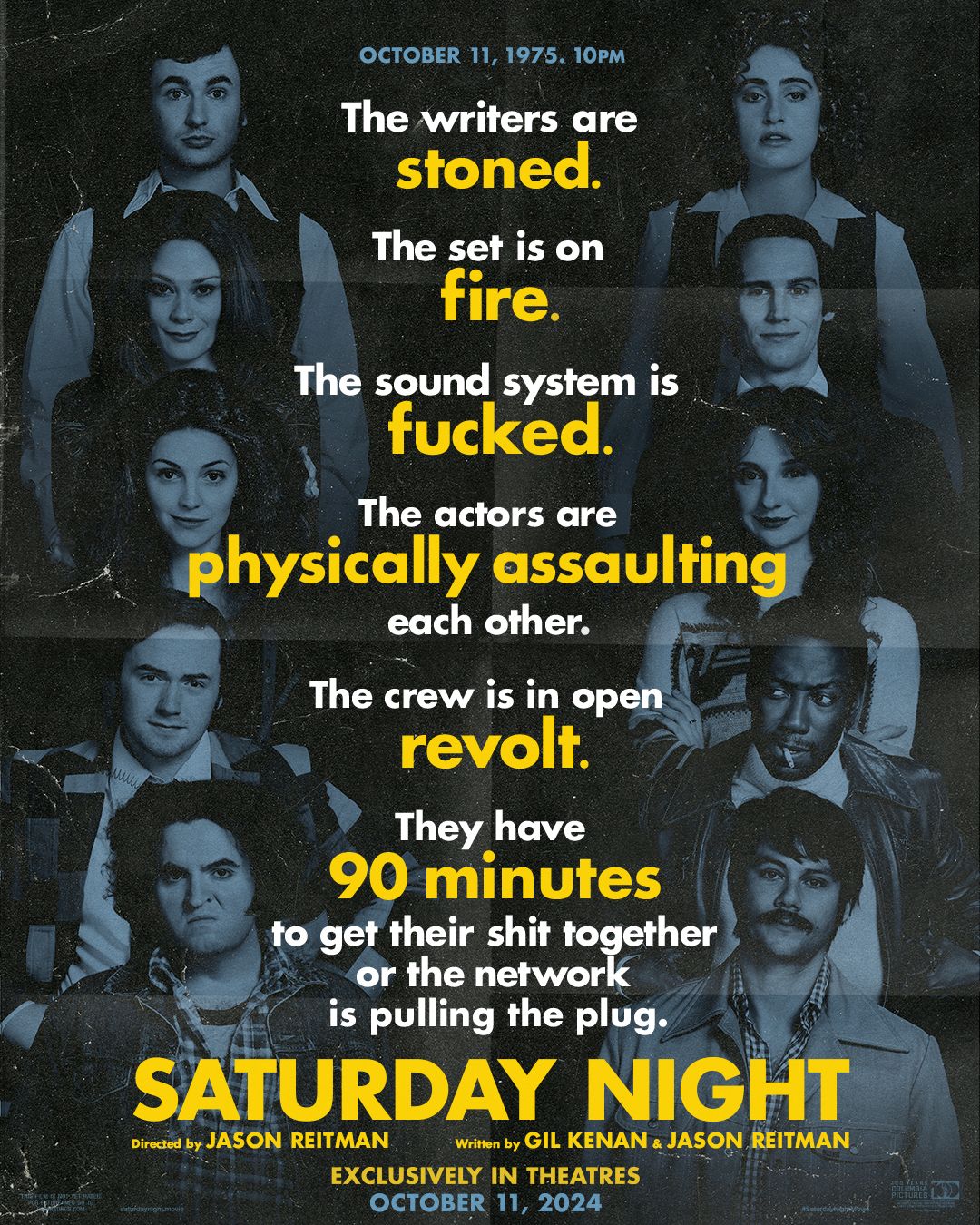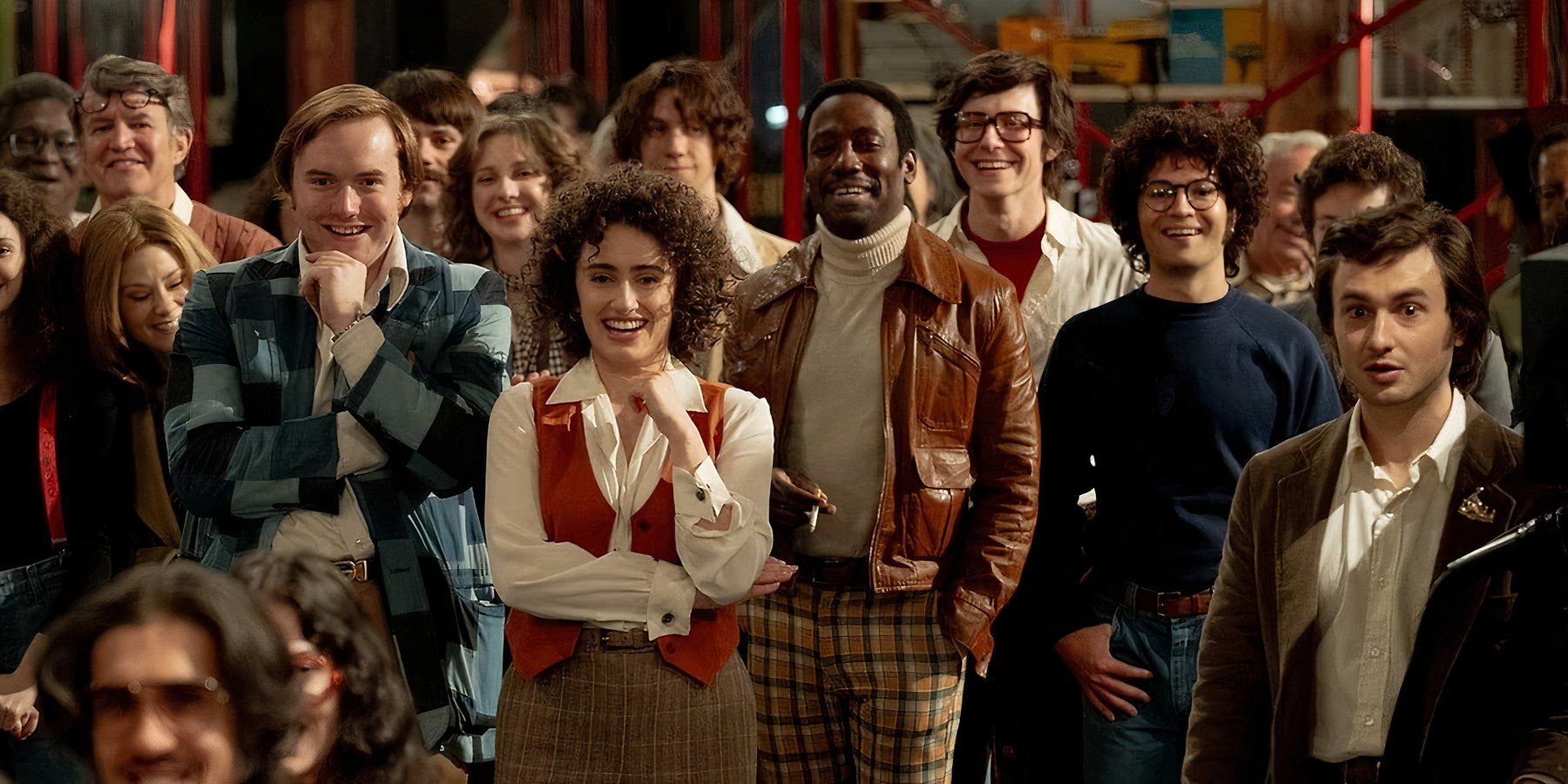Rosie Shuster: Unsung Architect Of Laughter And SNL's Golden Age
In the vast and often tumultuous world of television comedy, where fleeting fame often overshadows lasting impact, the name Rosie Shuster stands as a testament to quiet brilliance and profound influence. While not always in the spotlight, her contributions to some of the most iconic comedic productions of her era, particularly the foundational years of Saturday Night Live, are immeasurable. Shuster carved out a unique niche as a writer and performer, shaping the comedic landscape with her sharp wit, keen observational humor, and an innate understanding of what made audiences laugh. Her story is one of dedication, innovation, and an enduring legacy that continues to resonate with fans and aspiring comedians alike.
This article delves into the remarkable life and career of Rosie Shuster, exploring her journey from early creative endeavors to becoming a pivotal figure in American comedy. We will uncover the depth of her talent, her significant role in crafting the humor that defined a generation, and the lasting impact she has had on the industry. Prepare to discover the multifaceted genius behind the laughter, a true architect of comedy whose work continues to inspire.
Table of Contents
- Rosie Shuster: A Biographical Overview
- Personal Data: Rosie Shuster at a Glance
- Shaping Saturday Night Live: The Shuster Touch
- Beyond SNL: A Diverse Creative Journey
- The Art of Comedy: Rosie Shuster's Unique Voice
- Legacy and Influence: Rosie Shuster's Enduring Impact
- Challenges and Triumphs: Navigating a Male-Dominated Industry
- Rosie Shuster: More Than Just a Name in the Credits
Rosie Shuster: A Biographical Overview
The narrative of Rosie Shuster is deeply intertwined with the evolution of modern sketch comedy. Born into a family already steeped in the entertainment world, her path seemed almost predestined, yet she forged her own distinct identity through sheer talent and perseverance. Her journey is a compelling case study of how behind-the-scenes talent can profoundly shape popular culture.
Early Life and Formative Years
Rosie Shuster was born in Toronto, Ontario, Canada, a city that has served as a fertile ground for numerous comedic talents. Her father, Frank Shuster, was one half of the legendary Canadian comedy duo Wayne and Shuster, who achieved international acclaim and were regular fixtures on The Ed Sullivan Show. Growing up in such an environment undoubtedly exposed young Rosie to the mechanics of humor, the rhythm of comedic timing, and the dedication required for a career in entertainment. This early immersion provided a unique apprenticeship, allowing her to observe firsthand the craft of writing and performing comedy at a high level. It instilled in her not just an appreciation for comedy, but a deep understanding of its construction.
While details of her early education are not widely publicized, it is clear that her upbringing fostered a keen intellect and a sharp observational eye. These formative years, spent absorbing the nuances of comedic performance and the art of joke-telling from her father's work, laid a robust foundation for her future career. It's plausible that this early exposure also gave her a distinct perspective, allowing her to approach comedy with both an insider's knowledge and a fresh, inventive spirit.
The Path to Comedy: Early Career
Before her groundbreaking work on Saturday Night Live, Rosie Shuster honed her skills in various capacities within the nascent Canadian comedy scene. The exact trajectory of her early career is not as extensively documented as her later, more famous endeavors, but it is understood that she was actively involved in comedy writing and performance. This period was crucial for developing her unique voice and understanding the dynamics of live and televised comedy. It was during these formative years that she likely experimented with different comedic styles, found her rhythm, and established the professional connections that would eventually lead her to the epicenter of American comedy.
- Jessica Springsteen Married
- Ella Whitesell
- Pashto
- Peter Doocy Wife Cancer
- How Much Does Jimmy Kimmel Make
Her early work would have involved the rigorous process of pitching ideas, collaborating with other writers, and refining sketches, all essential skills that she would later master. This hands-on experience, away from the intense scrutiny of a national audience, provided her with the freedom to develop her craft organically. It was a period of growth and learning, setting the stage for the significant impact she would soon make on the world of television.
Personal Data: Rosie Shuster at a Glance
While public figures often guard their personal lives, certain biographical details provide context to their professional journeys. Here's a quick look at some key data points for Rosie Shuster:
| Category | Detail |
|---|---|
| Full Name | Rosie Shuster |
| Nationality | Canadian |
| Occupation | Writer, Comedian, Actress |
| Known For | Saturday Night Live (Writer/Performer), SCTV (Writer), The Kids in the Hall (Writer) |
| Family Background | Daughter of Frank Shuster (of Wayne and Shuster fame) |
| Notable Association | Former spouse of Lorne Michaels |
| Years Active (Known) | Primarily 1970s - 1990s (and beyond in various capacities) |
Shaping Saturday Night Live: The Shuster Touch
Rosie Shuster's most indelible mark on comedy history was undoubtedly her tenure at Saturday Night Live (SNL) during its formative and arguably most influential years. As part of the original writing staff, she was instrumental in crafting the show's groundbreaking humor, helping to define its unique voice and lasting legacy. Her work at SNL was more than just writing jokes; it was about building a comedic institution from the ground up.
Behind the Scenes: Writing for SNL
Joining SNL in 1975, Rosie Shuster stepped into a high-pressure, highly creative environment. The show, initially titled 'NBC's Saturday Night,' was a radical departure from traditional variety shows. It demanded a new kind of comedy – irreverent, topical, and often absurd. As a writer, Shuster was at the heart of this creative crucible. The SNL writers' room in those early days was a legendary space, filled with brilliant minds like Michael O'Donoghue, Al Franken, Tom Davis, and Anne Beatts, all working under the visionary guidance of Lorne Michaels, whom Rosie Shuster was married to at the time. This personal connection, while significant, never overshadowed her professional merit; her talent spoke for itself.
The writing process at SNL was famously intense, often involving all-night sessions, rapid-fire brainstorming, and constant revision. Shuster's ability to thrive in this environment speaks volumes about her resilience and comedic prowess. She contributed to the show's distinctive blend of political satire, pop culture parody, and character-driven sketches. Her work was characterized by a sharp intelligence and a knack for finding humor in the everyday, often elevating mundane situations to hilarious heights. She was not just a writer; she was a comedic architect, helping to lay the very foundations of what SNL would become.
Key Contributions and Memorable Sketches
While it's challenging to attribute specific sketches solely to one writer in a collaborative environment like SNL, Rosie Shuster was credited with contributing to many of the show's early classics. Her fingerprints are on the DNA of SNL's golden era. She had a particular talent for creating memorable characters and developing scenarios that allowed the iconic original cast members – Dan Aykroyd, John Belushi, Chevy Chase, Jane Curtin, Garrett Morris, Laraine Newman, and Gilda Radner – to shine. Her sketches often highlighted the absurdities of human behavior and societal norms, delivered with a wry sensibility.
One of the hallmarks of her writing was its ability to blend sharp social commentary with pure silliness. She understood the power of understatement as much as the impact of a grand, over-the-top performance. While specific sketch titles directly attributed to her might be elusive due to the collaborative nature of the show's credits, her influence on the overall tone and quality of the writing during those seminal years is undeniable. She helped establish the template for SNL's sketch comedy, a template that continues to influence the show decades later. Her work helped define the show's early identity, making it a cultural phenomenon that resonated with millions.
Beyond SNL: A Diverse Creative Journey
While Saturday Night Live remains a prominent highlight of her career, Rosie Shuster's creative contributions extended far beyond the walls of Studio 8H. Her talent as a writer and comedian was sought after for various other projects, showcasing her versatility and enduring appeal in the comedy landscape. This post-SNL period allowed her to explore different formats and collaborate with a new generation of comedic talent.
She notably contributed to another iconic Canadian sketch comedy show, SCTV (Second City Television). SCTV, much like SNL, was a breeding ground for comedic genius, featuring talents like John Candy, Eugene Levy, Catherine O'Hara, and Martin Short. Shuster's involvement with SCTV further solidified her reputation as a top-tier comedy writer, capable of adapting her style to different ensemble casts and comedic sensibilities. Her work on SCTV demonstrated her ability to contribute to a show that, while different in tone from SNL, shared a similar commitment to intelligent, character-driven humor.
Furthermore, Rosie Shuster lent her writing talents to The Kids in the Hall, another highly acclaimed Canadian sketch comedy troupe that gained significant popularity in the late 1980s and 1990s. Her work with this group underscored her continued relevance and ability to connect with evolving comedic trends. Contributing to these diverse projects showcased her adaptability and her deep understanding of what makes sketch comedy effective, regardless of the specific performers or network. Her career trajectory illustrates a sustained commitment to the craft of comedy writing, making her a respected figure across multiple significant comedic productions.
The Art of Comedy: Rosie Shuster's Unique Voice
What distinguished Rosie Shuster's comedic voice? It was a blend of astute observation, subtle absurdity, and a keen understanding of human foibles. Unlike some of her contemporaries who might have leaned into more overtly political or slapstick humor, Shuster often found the comedy in the mundane, the awkward, and the relatable aspects of everyday life. Her writing had a certain sophistication, a cleverness that invited audiences to think as much as to laugh.
She excelled at creating characters that, while exaggerated for comedic effect, felt grounded in reality. Her sketches often explored social dynamics, gender roles, and the subtle power struggles inherent in human interaction. This nuanced approach allowed for humor that was both deeply funny and often insightful. Rosie Shuster had a knack for dialogue that felt natural yet delivered punchlines with precision. Her contributions helped to elevate sketch comedy beyond mere gags, turning it into a form of social commentary and artistic expression. Her unique perspective, honed over years of observation and practice, made her an invaluable asset to any writing team she joined.
Legacy and Influence: Rosie Shuster's Enduring Impact
The legacy of Rosie Shuster extends far beyond the specific sketches she wrote or the shows she contributed to. Her impact is felt in the very fabric of modern sketch comedy. As one of the pioneering female writers in a male-dominated industry, she paved the way for countless women who followed. Her success demonstrated that women could not only write comedy but could also shape its direction and define its standards.
Her work on SNL, in particular, helped establish the benchmark for late-night sketch comedy. The show's original run, heavily influenced by writers like Shuster, set a precedent for intelligent, edgy, and culturally relevant humor. Generations of comedians and writers have studied and drawn inspiration from the early SNL episodes, many of which bear the indelible mark of Rosie Shuster's creative input. Her influence can be seen in the continued popularity of character-driven comedy, the use of satire to address current events, and the overall emphasis on strong writing as the backbone of successful sketch shows.
Beyond the technical aspects of comedy writing, Shuster's career serves as an inspiration for anyone pursuing a creative path. It underscores the importance of perseverance, collaboration, and staying true to one's unique voice. Even if her name isn't as widely recognized as some of the performers she wrote for, her work continues to entertain and influence, making her an unsung hero of comedy.
Challenges and Triumphs: Navigating a Male-Dominated Industry
Working in the comedy industry, especially during the 1970s and 80s, presented unique challenges for women. The writers' rooms were often predominantly male, and female voices, while increasingly present, still had to fight for recognition and equal footing. Rosie Shuster navigated this landscape with grace, talent, and undeniable skill. Her ability to thrive and make significant contributions in such an environment speaks volumes about her resilience and determination.
Her success was a triumph not just for her personally, but for women in comedy as a whole. She proved that comedic genius knows no gender. By consistently delivering high-quality, impactful material, she helped break down barriers and broaden the perception of who could be a successful comedy writer. Her career stands as a testament to the fact that talent, when combined with perseverance, can overcome systemic obstacles. She was a quiet trailblazer, whose work spoke louder than any public pronouncements, opening doors for future generations of female comedians and writers.
Rosie Shuster: More Than Just a Name in the Credits
In an industry that often celebrates performers over the creative minds behind the scenes, it's easy for writers like Rosie Shuster to be overlooked. Yet, her impact is profound and enduring. She was not merely a name in the credits; she was a vital force, a creative engine that helped power some of the most beloved and influential comedy shows of her time. Her work demonstrates that true comedic artistry lies not just in delivery, but in conception, in the meticulous crafting of jokes, characters, and scenarios that resonate deeply with an audience.
Rosie Shuster's career serves as a powerful reminder of the collaborative nature of great television and the indispensable role of the writer. Her legacy is etched into the annals of comedy history, a testament to her intelligence, wit, and unwavering dedication to making people laugh. She is a figure deserving of greater recognition, a true architect of laughter whose contributions continue to shape the comedic landscape.
Conclusion
From her early days immersed in a comedic household to becoming a foundational writer for Saturday Night Live and beyond, Rosie Shuster's journey is a compelling narrative of talent, perseverance, and quiet impact. She helped define the voice of a generation of comedy, crafting sketches and characters that continue to be revered. Her contributions to SNL, SCTV, and The Kids in the Hall solidify her status as one of the most influential, albeit often unsung, comedy writers of her era. She was a trailblazer for women in comedy, proving that sharp wit and insightful observation could break through any barrier.
Rosie Shuster's story is a powerful reminder that true influence often comes from behind the scenes, shaping the very foundation of what we consume and enjoy. Her legacy is not just in the laughter she created, but in the doors she opened and the standards she set for comedic excellence. We hope this deep dive into her remarkable career has shed light on the significant contributions of this extraordinary talent.
What are your favorite sketches or shows that you now realize might have been influenced by a writer like Rosie Shuster? Share your thoughts in the comments below! And if you enjoyed learning about the unsung heroes of comedy, be sure to explore our other articles on influential figures in entertainment history.

What Happened To Lorne Michaels' Wife Rosie Shuster After Saturday Night

What Happened To Lorne Michaels' Wife Rosie Shuster After Saturday Night

What Happened To Lorne Michaels' Wife Rosie Shuster After Saturday Night